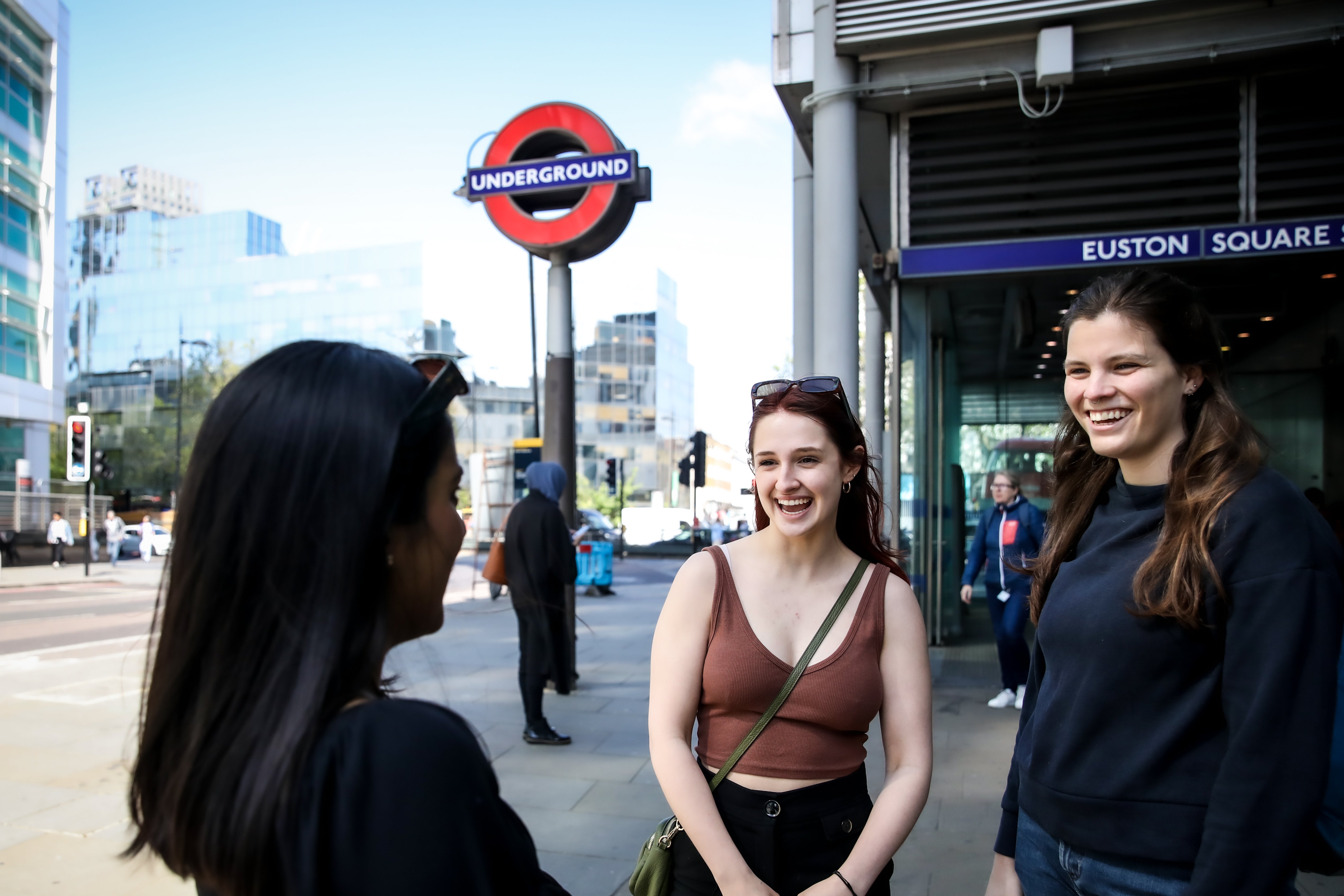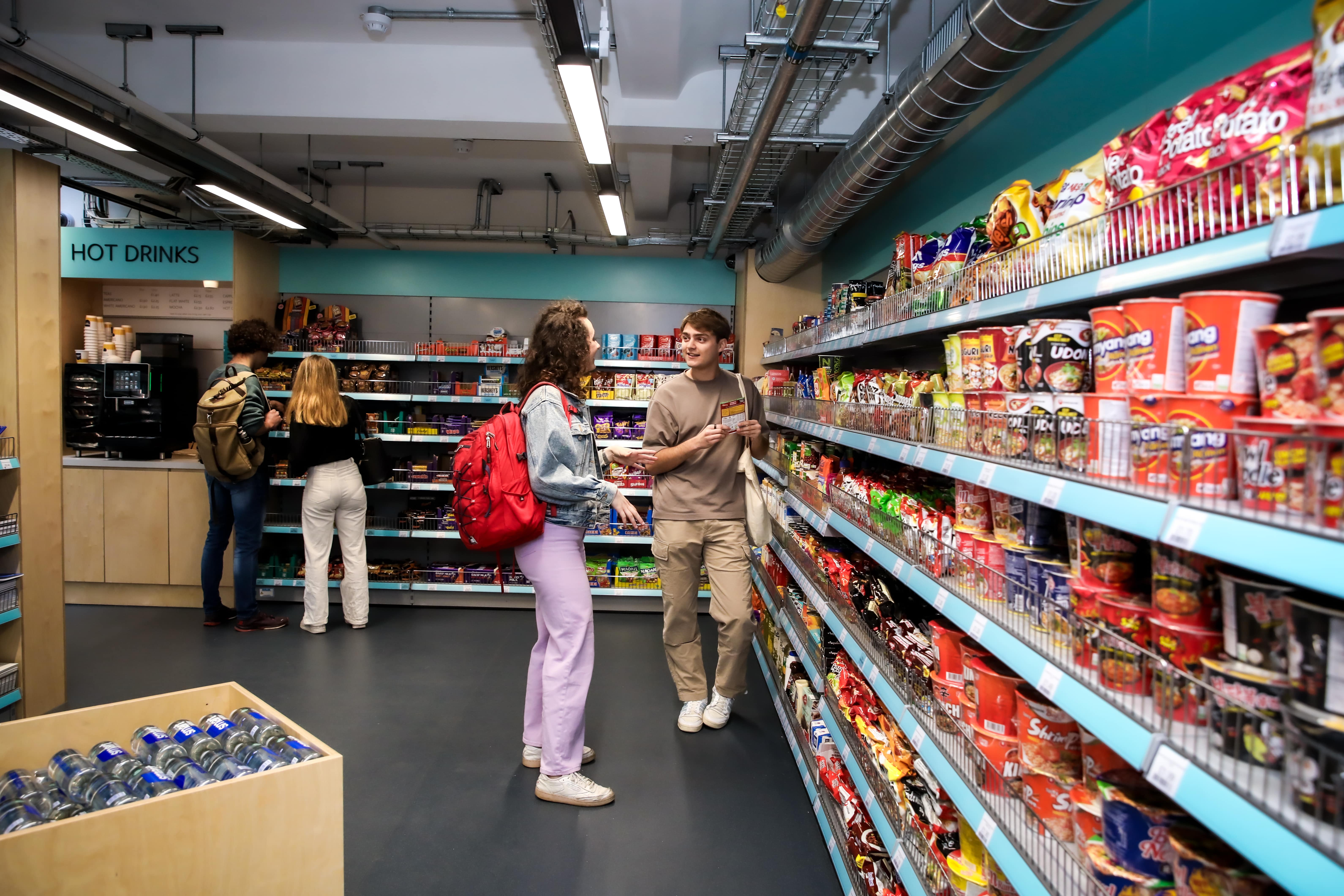For some students joining us from overseas, Students’ Unions are entirely new, but in many ways, we're more important for you in the first few weeks than we are for other new starters. As you get used to living in a new country, we’re here for you every step of the way - from helping you find your feet to introducing you to all the amazing things that London has to offer!
All that we do is open to every student, whether you're international or not, but here are a few tips and pointers specific to international students.

Top Tips
Sort out your visa
If you’re NOT a citizen of the EU, EEA, or Switzerland this should be your first priority. Apply for your Tier 4 visa as soon as possible because the process can take weeks to finish. UCL has plenty of guidance on applying for visas.
Set up your UK bank account
Look into this before you arrive, as bank accounts can take a while to set up. You'll need to ensure you have the correct documentation. Make sure you check if your current bank account has any ties to the UK, such as Santander or HSBC, as this would make the process smoother.
While your bank account is set up, you may be without a card for a few days when you first arrive - consider bringing some cash or a pre-paid card (more info on that here).
Get a UK number
This isn't a must, although it will make communication with your bank or your landlord easier and online forms can actually recognise your number (sometimes they don’t accept foreign numbers as valid). Save yourself the headache and get a UK sim card.
Register with a local doctor
It's better to register well before you need to use the NHS as you might find yourself in a situation where you have to wait weeks instead of days before seeing a doctor. In the UK, your local doctor is known as a 'General Practitioner' and is normally the first port of call for non-emergency related illness. If you're in an emergency, call 999!
If you're outside of the EU, you'll have to pay a health surcharge as part of your visa application. This gives you access to the NHS, which includes hospital treatment and visits to the doctor.
Get a National Insurance Number
If you’re planning on getting a part-time job or applying for a student loan, you'll need a National Insurance Number. You can start work without one but you must then apply immediately - so it's bed to be prepared. You can now apply online.
Bring some snacks from home
London has tons of international food stores, but it's worth packing a few of your favourite snacks from home (if you can) to bring you some comfort during your settling-in period.
However, you're bound to find what you're looking for somewhere in the city. For example, on-campus shops have their very own international food section, so you're sure to find something to satisfy your cravings!

Support for you
International Students’ Representation
Sometimes, the university experience for students who haven’t lived in the UK is different to those who have. That’s why we elect students to speak up for specific issues and obstacles faced by international students. Welfare and Community Officer, Rachel, is here to help, as is your International Officer Manaal - contact them if you’ve got any issues throughout the year. Along with Academic Reps in your department, there should always be someone from the Union around to support you.
You yourself can become the next Academic Rep (a voluntary role alongside your studies), the next International Officer (voluntary and alongside your studies) or the next Welfare and International Officer (paid, full-time role). Don’t worry about experience, we just need passion and drive! Keep an eye out on our social media as we’ll be running elections for Academic Rep roles in term 1 and the officer roles in term 2. If you want to know more about these roles and how to apply to them then email us at su.elections@ucl.ac.uk.
Making Friends
Cultural Societies are country specific societies. From ABASCUS Society (Association of British and Chinese University Students) to the Vietnamese Society and all the countries in between, there’s a lot of cultural societies to choose from - 75 to be exact. And you don’t have to be from these countries to join the society. You don’t have to be from Afghanistan to join the Afghan Society - you just have to be interested in Afghan culture.
These societies are a great way to learn more about the world around you and you’ll get an added layer of support and friendship from the students around you.
Our What's on? calendar contains all the information you need about the events being run every day, every week, and every month. From Sports taster sessions to group walking events, our line up of activities at UCL ensures that you'll have a vibrant social life while settling into your new home.
Writing and Language Support
One key way that we provide support to international students is through our Language and Writing Support Programme. The programme helps non-native English speaking students with their academic writing and speaking. Peer Tutors run different types of free activities to help you with your written and spoken English, including a regular programme of workshops, bookable one-to-one sessions, and ‘Coffee and Conversation’ (a weekly opportunity to get together and practice your spoken English with other students).